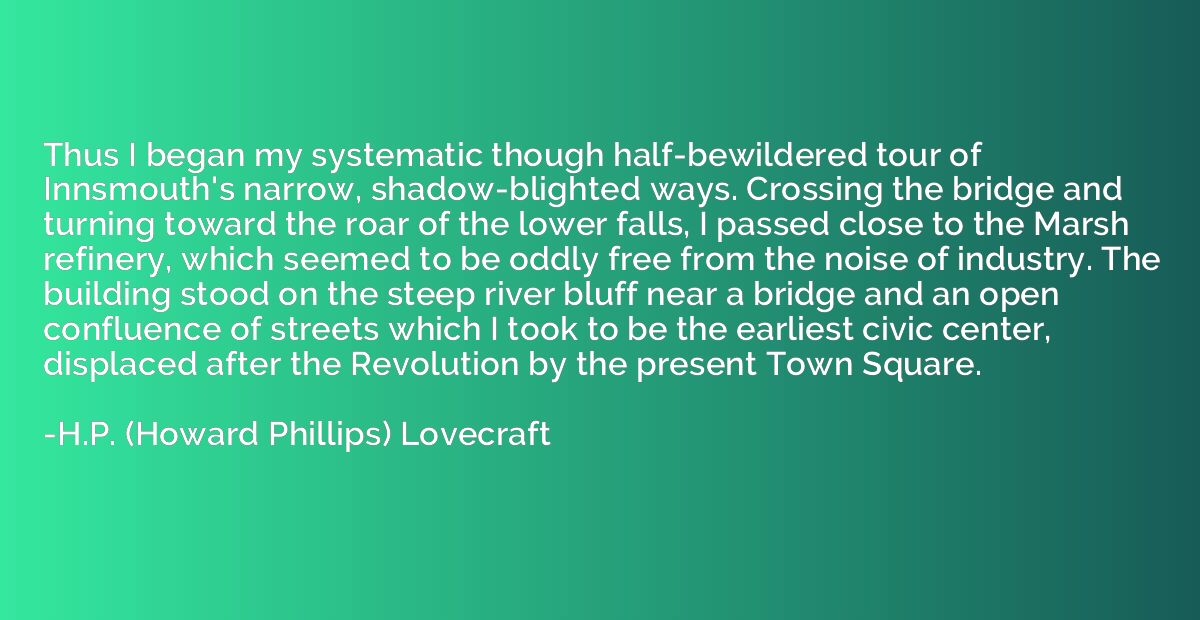Quote by H.P. (Howard Phillips) Lovecraft
Thus I began my systematic though half-bewildered tour of Innsmouth's narrow, shadow-blighted ways. Crossing the bridge and turning toward the roar of the lower falls, I passed close to the Marsh refinery, which seemed to be oddly free from the noise of industry. The building stood on the steep river bluff near a bridge and an open confluence of streets which I took to be the earliest civic center, displaced after the Revolution by the present Town Square.

Summary
In this quote, the narrator describes their exploration of the town of Innsmouth. Though feeling somewhat confused and uncertain, they walk through its narrow and sinister streets. As they pass by the Marsh refinery, they note the absence of the typical sounds of industrial activity. The refinery, positioned on a high bluff near a bridge and confluence of streets, hints at Innsmouth's significant historical past and its original importance as a civic center prior to the Revolution. This brief description sets the stage for the eerie atmosphere and mysterious nature of the town.














